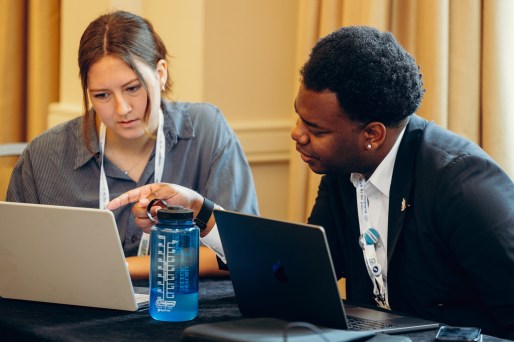The Journalist’s Guide to Publishing on stnews.live and Engagement
The Relevance of Fact-Checking on the planet of News Online
The prevalence of misinformation in today's on-line news landscape has gotten to disconcerting degrees. Fact-checking organizations play a necessary role in combating this pattern. They verify insurance claims and enhance the integrity of journalism. The effectiveness of these organizations commonly hinges on their techniques and public assumption. As audiences browse this complicated atmosphere, the ramifications of their findings may form the future of news consumption and trust. What does this mean for the integrity of details relocating ahead?

The Surge of False Information in the Digital Age
Exactly how has the advent of electronic technology added to the spread of misinformation? The fast development of the web and social media systems has assisted in the circulation of info at an unprecedented pace. Individuals can share articles, video clips, and opinions with a simple click, usually without confirming the web content's precision. Formulas focus on mind-blowing or mentally charged material, bring about a proliferation of deceptive stories that capture focus.
Furthermore, the privacy afforded by digital platforms enables people to spread out incorrect information without responsibility (stnews.live). False information thrives in echo chambers, where customers are revealed mainly to perspectives that enhance their beliefs, even more setting falsehoods. The saturation of details can overwhelm individuals, making it testing to determine reputable sources from unreliable ones. Consequently, false information has actually ended up being a pervasive issue in the electronic landscape, impacting public viewpoint and count on legitimate news sources
The Duty of Fact-Checking Organizations
Fact-checking companies play a vital function in boosting the trustworthiness of journalism by confirming insurance claims made in news reports. Their efforts are crucial in combating false information, making sure that precise information prevails in the electronic landscape. By holding media electrical outlets accountable, these companies add significantly to notified public discussion.
Enhancing Integrity in Journalism
While false information proliferates in the electronic age, fact-checking companies play an essential function in boosting the trustworthiness of journalism. These companies thoroughly confirm insurance claims made in newspaper article, public declarations, and social media sites articles, ensuring that details distributed to the public is precise and reliable. By offering independent evaluations, they serve as an essential resource for journalists, assisting them keep high standards of honesty. Additionally, their initiatives promote openness in media, cultivating public count on. As target markets become significantly discerning, the presence of reliable fact-checking entities can identify reputable news resources from those that may spread frauds. Inevitably, the dedication of fact-checking companies to promote truthfulness is critical for the health and wellness of autonomous discussion.
Combating Misinformation Properly
As false information remains to spread out swiftly throughout electronic systems, the function of fact-checking organizations comes to be increasingly crucial in the fight for precise information. These organizations offer as watchdogs, looking at insurance claims made by somebodies and media electrical outlets to guarantee liability. By utilizing rigorous research study methods and professional evaluation, they verify facts and clear up misleading narratives. Their findings are distributed via numerous networks, informing the general public and promoting critical thinking. Furthermore, collaborations with social networks systems boost their reach, permitting for punctual flagging of false info. As digital literacy expands, the impact of fact-checking organizations is important in equipping target markets to determine fact from fraud, inevitably adding to a more educated culture.
How Misinformation Affects Public Understanding
Misinformation substantially undermines rely on media, leading target markets to question the trustworthiness of news sources. As an outcome, individuals usually move towards outlets that strengthen their present ideas, adding to the polarization of opinions. This vibrant produces a fragmented details landscape, where shared understanding comes to be significantly hard to achieve.
Rely on Media

Count on in media has become increasingly vulnerable in the digital age, where the quick spread of false information can skew public assumption. As misinformation multiplies throughout social media and on the internet systems, audiences typically discover it challenging to recognize credible resources from unreliable ones. This uncertainty cultivates apprehension, leading several people to question the intentions behind news coverage. Trust in developed media electrical outlets has lessened, as customers progressively transform to alternative sources that may lack rigorous article editorial criteria. This erosion of trust not only influences individual ideas however also threatens the cumulative capability to involve in educated discussions. Eventually, the integrity of journalism goes to risk, highlighting the vital requirement for effective fact-checking to bring back self-confidence in the media landscape.

Polarization of Opinions
The increasing suspicion towards standard media has actually added to an expanding polarization of point of views among the public. Misinformation, usually shared through social networks and on the internet platforms, plays a considerable duty fit unique ideological divides. Individuals often seek out details that aligns with their pre-existing beliefs, reinforcing their viewpoints while disregarding opposing point of views. This echo chamber effect escalates divisions, leading to a fragmented public discussion where consensus becomes progressively evasive. In addition, sensationalized stories flourish in this atmosphere, further skewing public perception and promoting mistrust in trustworthy sources. As polarization escalates, the need for reliable fact-checking comes to be extremely important to bridge gaps and promote educated conversations, ultimately guaranteeing a more natural culture efficient in navigating intricate problems.
Strategies for Effective Fact-Checking
Reliable fact-checking counts on a systematic strategy that includes thorough study, verification of resources, and important analysis of cases. A foundational technique is cross-referencing information from numerous credible resources to confirm its precision. Fact-checkers usually make use of specialized databases and see archives to map the beginning of particular statements, guaranteeing that the reported details lines up with recorded proof.
An additional necessary approach involves scrutinizing the context in which insurance claims exist. Misleading info can emerge from out-of-context quotes or careful information usage. By examining the wider story, fact-checkers can identify possible predispositions or misinterpretations.
Involving with experts in appropriate areas can give clearness and understanding that boosts the fact-checking procedure. This cooperation can uncover nuances that laypeople might overlook - stnews.live. Eventually, a regimented technique incorporating these methods promotes an extra enlightened public, boosting the integrity of details disseminated in the electronic age
The Effect of Social Media on News Usage
Exactly how has social media changed the way individuals take in news? The development of systems like Facebook, Twitter, and Instagram has significantly transformed news consumption patterns. News is now shared rapidly, permitting individuals to accessibility real-time updates and engage with material with likes, shares, and comments. This immediacy has cultivated a choice for bite-sized info, usually at the expense of comprehensive evaluation.
In addition, social networks makes it possible for customized news feeds, where algorithms curate material based upon user preferences, creating echo chambers that might limit direct exposure to varied point of views. The duty of traditional news electrical outlets has actually decreased as individuals significantly rely upon peer recommendations and trending topics. The integrity of details is commonly compromised, as sensationalism can outweigh accurate coverage. On the whole, social networks has improved news usage, highlighting speed and customization while challenging the criteria of journalistic integrity.
Encouraging Audiences to Identify Trustworthy Resources

Additionally, taking a look at the authorship and business background of newspaper article can disclose prospective biases. Cross-referencing information across numerous trusted outlets additionally boosts the confirmation procedure. Utilizing digital devices, such as internet browser extensions that rank the credibility of websites, review can additionally assist in determining trustworthy details. By actively involving with these sources and growing a vital mindset, target markets can better equip themselves to discern reliable news sources, eventually fostering a more educated culture among the complexities these days's media setting.
The Future of Journalism and Fact-Checking
As the media landscape evolves, the future of journalism and fact-checking deals with both tests and possibilities. The rise of electronic platforms has democratized information dissemination, enabling varied voices to arise. This has actually likewise led to the spreading of misinformation, requiring robust fact-checking devices. Reporters will progressively count on modern technology, consisting of AI devices, to confirm truths quickly and efficiently.
Partnership between news organizations and fact-checking entities is prepared for to strengthen integrity and transparency. In addition, audience engagement will certainly play a necessary role, as notified readers come to be considerable companions in recognizing trustworthy content.
The need for accountability and accuracy is likely to grow, pressing journalists to maintain high standards in their reporting. Inevitably, the future of journalism may depend upon its ability to adapt to technical improvements while maintaining journalistic stability, guaranteeing that fact-checking stays a foundation of trustworthy news.
Often Asked Inquiries
How Can I Report Misinformation I Come Across Online?
To report misinformation experienced online, people can utilize platform-specific reporting devices, offer clear proof, and share the details with fact-checking organizations. Involving with community conversations can likewise help increase understanding concerning the misinformation.
What Are Usual Indicators of Misinformation in News Articles?
Common indicators of misinformation in news write-ups include sensational headlines, lack of credible sources, emotional language, inconsistent truths, and lack of writer qualifications. Viewers need to critically assess material for these signs to recognize accuracy.
Exactly How Do Fact-Checkers Validate Sources?
Fact-checkers verify sources by cross-referencing details with credible databases, speaking with professionals, and checking out the original context of insurance claims. They additionally evaluate the dependability of the resources, making sure exact and credible information for public consumption.
What Lawful Activities Can Be Taken Against Misinformation?
Lawful activities versus misinformation may include vilification suits, cease-and-desist orders, and governing fines. Sufferers can prosecute via civil courts, while some territories enforce penalties or permissions on platforms disseminating incorrect info.
Exist Apps for Fact-Checking News On-The-Go?
Various apps exist for fact-checking news on-the-go, consisting of Snopes, FactCheck.org, and PolitiFact. These applications assist users verify cases quickly, advertising notified decision-making and fostering a more discerning technique to consuming news in real-time.